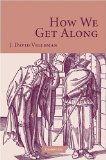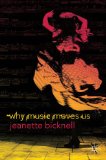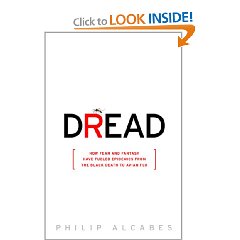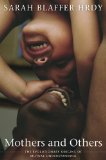May 2, 2009

How We Get Along by David Velleman (Columbia University Press, 2009)
In How We Get Along, philosopher David Velleman compares our social interactions to the interactions among improvisational actors on stage. He argues that we play ourselves-not artificially but authentically, by doing what would make sense coming from us as we really are. And like improvisational actors, we deal with one another in dual capacities: both as characters within the social drama and as players contributing to the shared performance. In this conception of social intercourse, Velleman finds rational grounds for morality, though not a rational guarantee. He maps a middle course between skepticism and rationalism, arguing that practical reasoning is “pro-moral’ without requiring moral action. The result is what he calls a “Kinda Kantian metaethics”. Written in an accessible and engaging style, How We Get Along is the summation of Velleman’s thinking to date, incorporating and unifying previous work on agency, the self, the emotions, narrative, and Kantian moral theory.
A preview is available at the publisher’s website.
Author’s home page has links to some online papers.
Comments (0)
- culture,new books,self
April 30, 2009

Why Music Moves Us by Jeanette Bicknell (Palgrave MacMillan, 2009)
Product information from the publisher:
Surely you’ve experienced it before: you’re listening to a piece of music and all of a sudden you find a lump in your throat, a tear in your eye, or a chill down your spine. Whether it’s Beethoven’s Choral Symphony or The Verve’s ‘Bittersweet Symphony’, a bit of blues or a bit of baroque, music has the power to move us. It’s a language which we all speak. But why does it have this effect on us? What is going on, emotionally, physically and cognitively when listeners have strong emotional responses to music? What, if anything, do such responses mean? Can they tell us anything about ourselves? Jeanette Bicknell uses research in philosophy, psychology, neuroscience, and anthropology to address these questions, ultimately showing us that the reason why some music tends to arouse powerful experiences in listeners is inseparable from the reason why any music matters at all. Musical experience is a social one, and that is fundamental to its attractions and power over us.
The author’s website has a chapter-by-chapter synopsis.
Comments (0)
- culture,new books,philosophy of mind,psychology
April 28, 2009

Dread: How Fear and Fantasy have Fueled Epidemics from the Black Death to the Avian Flu by Philip Alcabes (PublicAffairs, April 13, 2009) appeared shortly before the current swine flu outbreak. (& it has a Kindle edition)
Product description from the publisher:
The average individual is far more likely to die in a car accident than from a communicable disease…yet we are still much more fearful of the epidemic. Even at our most level-headed, the thought of an epidemic can inspire terror. As Philip Alcabes persuasively argues in Dread, our anxieties about epidemics are created not so much by the germ or microbe in question—or the actual risks of contagion—but by the unknown, the undesirable, and the misunderstood.
Alcabes examines epidemics through history to show how they reflect the particular social and cultural anxieties of their times. From Typhoid Mary to bioterrorism, as new outbreaks are unleashed or imagined, new fears surface, new enemies are born, and new behaviors emerge. Dread dissects the fascinating story of the imagined epidemic: the one that we think is happening, or might happen; the one that disguises moral judgments and political agendas, the one that ultimately expresses our deepest fears.
See also: article at Smithsonian.com
Author’s website added 4/29
Comments (2)
- culture,happiness,new books
April 2, 2009

Mothers and Others: The Evolutionary Origins of Mutual Understanding is a new book by anthropologist/primatologist Sarah Blaffer Hrdy (Belknap Press, 2009).
Product description from the publisher:
Somewhere in Africa, more than a million years ago, a line of apes began to rear their young differently than their Great Ape ancestors. From this new form of care came new ways of engaging and understanding each other. How such singular human capacities evolved, and how they have kept us alive for thousands of generations, is the mystery revealed in this bold and wide-ranging new vision of human emotional evolution.
Mothers and Others finds the key in the primatologically unique length of human childhood. If the young were to survive in a world of scarce food, they needed to be cared for, not only by their mothers but also by siblings, aunts, fathers, friends—and, with any luck, grandmothers. Out of this complicated and contingent form of childrearing, Sarah Hrdy argues, came the human capacity for understanding others. Mothers and others teach us who will care, and who will not.
From its opening vision of “apes on a plane”; to descriptions of baby care among marmosets, chimpanzees, wolves, and lions; to explanations about why men in hunter-gatherer societies hunt together (hint: it’s called the Showing-Off Hypothesis), Mothers and Others is compellingly readable. But it is also an intricately knit argument that ever since the Pleistocene, it has taken a village to raise children—and how that gave our ancient ancestors the first push on the path toward becoming emotionally modern human beings.
An excerpt is available through the publisher’s website.
Comments (0)
- culture,human evolution,new books
March 24, 2009

Adam’s Tongue: How Humans Made Language, How Language Made Humans by Derek Bickerton (Hill & Wang, 2009)
Product description from the publisher:
How language evolved has been called “the hardest problem in science.” In Adam’s Tongue, Derek Bickerton—long a leading authority in this field—shows how and why previous attempts to solve that problem have fallen short. Taking cues from topics as diverse as the foraging strategies of ants, the distribution of large prehistoric herbivores, and the construction of ecological niches, Bickerton produces a dazzling new alternative to the conventional wisdom. Language is unique to humans, but it isn’t the only thing that sets us apart from other species—our cognitive powers are qualitatively different. So could there be two separate discontinuities between humans and the rest of nature? No, says Bickerton; he shows how the mere possession of symbolic units—words—automatically opened a new and different cognitive universe, one that yielded novel innovations ranging from barbed arrowheads to the Apollo spacecraft. Written in Bickerton’s lucid and irreverent style, this book is the first that thoroughly integrates the story of how language evolved with the story of how humans evolved. Sure to be controversial, it will make indispensable reading both for experts in the field and for every reader who has ever wondered how a species as remarkable as ours could have come into existence.
See also: review at New Scientist
Comments (0)
- cognitive science,culture,human evolution,language,new books







